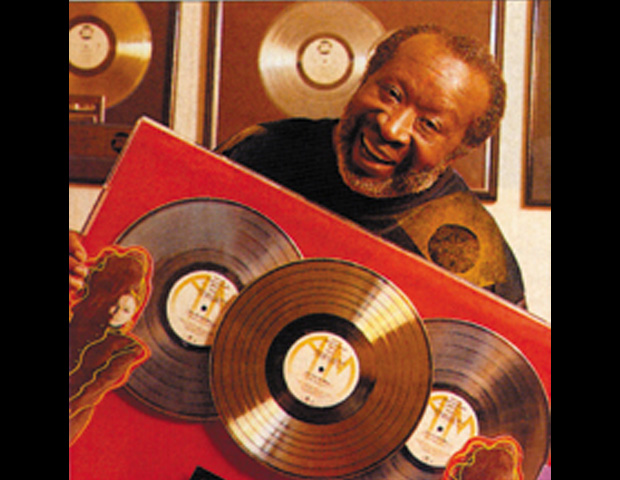[ad_1]
When songwriter and musician Bill Withers died on April 3, the outpouring of respect pierced through our national COVID-19 coma like a rocket. And no wonder. Withers’ musical legacy is comprised of a number of hits that resonated across generations, races, religions, genres, and geographical borders, including 1972’s “Lean On Me,” which director Tyler Perry and others have made a clarion call for these difficult socially distanced days.
Far less known than Withers’ beautiful music is the story of his career, which afforded him a lifetime of financial freedom and the ability to live on his own terms until he died at the age of 81.
Songs like “Lovely Day” and “Just the Two of Us” helped to place Withers in the Songwriters Hall of Fame and Rock and Roll Hall of Fame. But the lessons that can be taken from his career in the music business are just as timeless and relevant today as ever.
Fortune favors hard work, self-starters, and the self-taught
You don’t have to have access or the best education to get ahead. You have to be hungry and willing to work hard. Withers never had any formal musical training; he had natural talent, genuine passion, and a willingness to learn what he could, anyway he could.
He grew up the youngest of six children in Slab Fork, West Virginia, a poor mining town marked by Jim Crow racism and local music, mostly country and gospel. He was born with a stutter that he painstakingly managed to rid himself of while he was in the Navy. While working in a California aircraft parts factory after returning from the Vietnam War, Withers bought a secondhand guitar from a pawnshop and taught himself to play. He started writing songs between shifts at the factory. The goal wasn’t fame, he told journalist Andy Greene in a 2015 profile in Rolling Stone. “It was all about survival.”
Rejection is part of the process. Just keep going.
In 1970, Withers scraped together enough of his hourly pay to self-fund a crude demo and shopped it to major labels with zero success. But a meeting with Clarence Avant, now known as the Black Godfather, changed everything. Avant signed Withers to his newly formed indie label, Sussex, teamed him with producer Booker T. Jones, and they completed his 1971 debut album, Just As I Am, in just a few days. It featured two hits that endure to this day – “Grandma’s Hands” and “Ain’t No Sunshine,“ which has been covered by artists from Michael Jackson to Ladysmith Black Mambazo and the heavy metal band Black Label Society. The song even has its own Wikipedia page. “What few songs I wrote during my brief career, there ain’t a genre that somebody didn’t record them in,” he told Rolling Stone. “I’m not a virtuoso, but I was able to write songs that people could identify with.”

Clarence Avant circa 2004: Considered the “Godfather of Black Entertainment”
Stay humble. And keep your day job.
The photo for Withers’ first album cover was taken on a lunch break from his job at Weber Aircraft. “Cause I didn’t want to take time off,” he explained in a 2015 interview with CBS This Morning. “So, I’m standing in the door with my actual lunch box!” Withers never quit that job. He was laid off just prior to the album’s release and by the time the company tried to hire him back, he also had an invitation to appear on The Tonight Show.
Reinvest in your business, and long-term financial stability.
Withers took some of his earnings from Just As I Am and bought a piano. As he went about once again teaching himself a new instrument, he began tinkering with some simple chord progressions one day. They resulted in the hit, “Lean on Me,” which became the centerpiece for his second album, Still Bill, and which remains a beloved anthem to friendship and unity in times of crisis throughout the world.
Stay true to you!
In the early going, Withers always did his thing, his way. He never hired a manager, he produced his own songs (music and lyrics), wrote his own liner notes, and designed his own album covers. At Sussex, he had complete creative control over his music but after Avant’s company went bankrupt in 1975, Withers signed a 5-record deal with Columbia and the experience soured him on the business.
“I met my A&R guy, and the first thing he said to me was, `I don’t like your music or any black music, period,’” Withers recalled in the 2015 Rolling Stone article. “I am proud of myself because I did not hit him.” Once he completed his obligations to Columbia in 1985, he walked away from the business. And he could—because he made roughly half of every dollar his songs ever earned for the rest of his life.
Never stop growing—or knowing who to trust.
Withers’ first marriage to Denise Nicholas was notoriously unhappy and widely rumored to be abusive, but Withers went on to marry Marcia Johnson, whom he met in 1976 at a Gil Scott Heron concert. Married for 44 years until his death, Marcia Withers has run her husband’s publishing companies for years and has been instrumental in the lucrative placement of his songs in countless films, television programs, and other media. “We’re a mom-and-pop shop,” he told Rolling Stone. “She’s my only overseer. I’m lucky I married a woman with an M.B.A.”
[ad_2]
Source link

